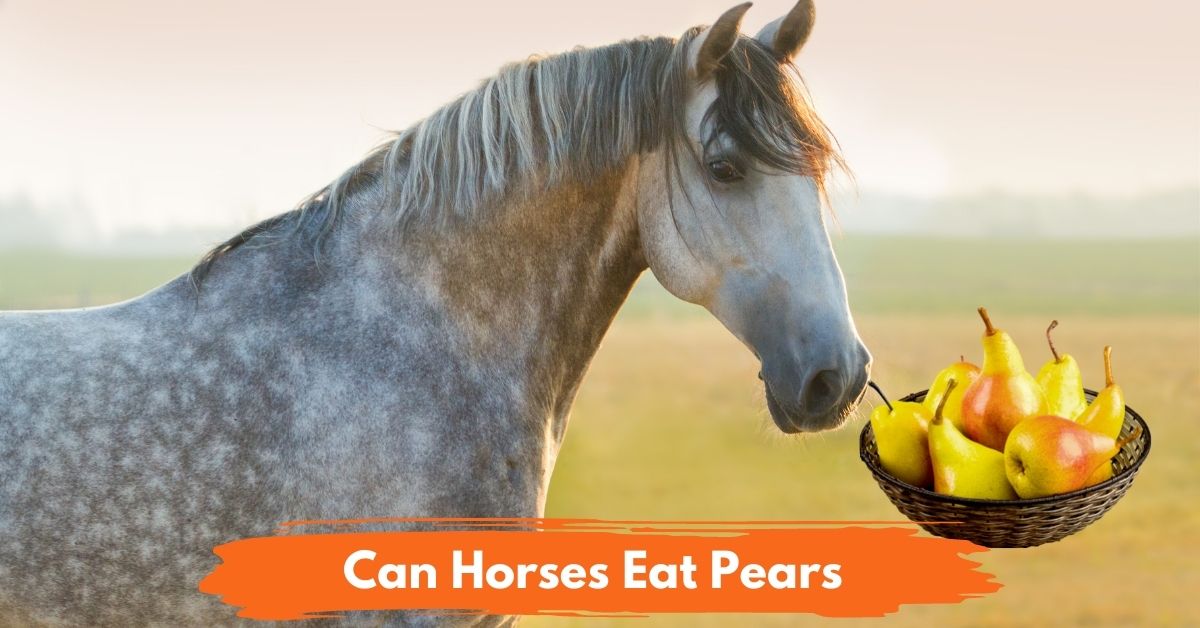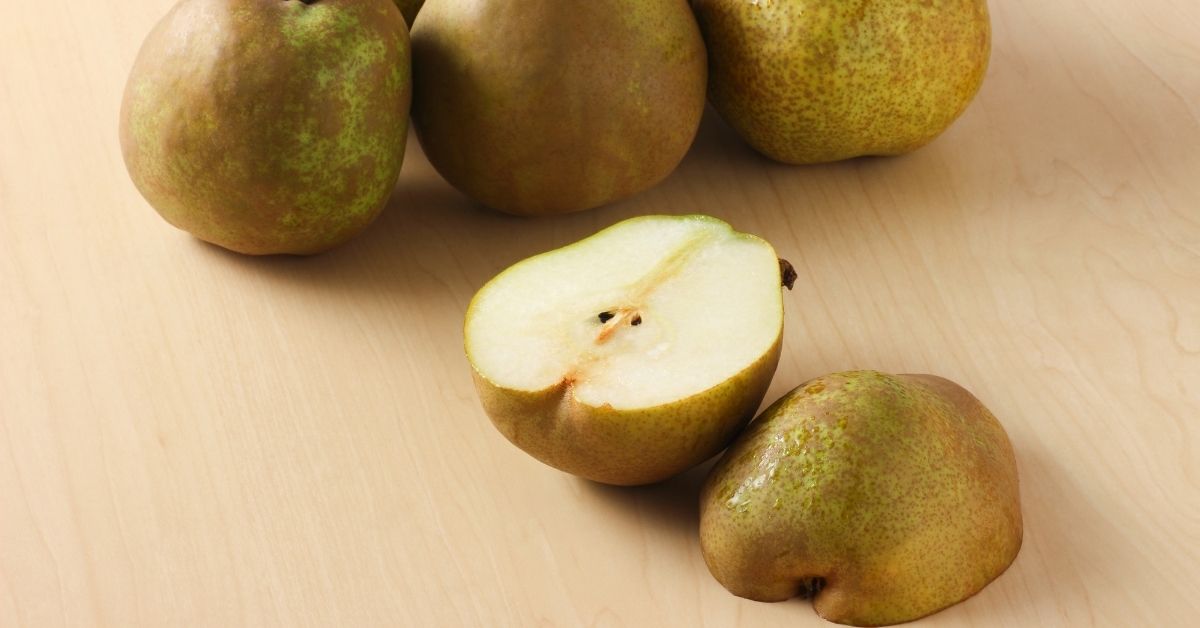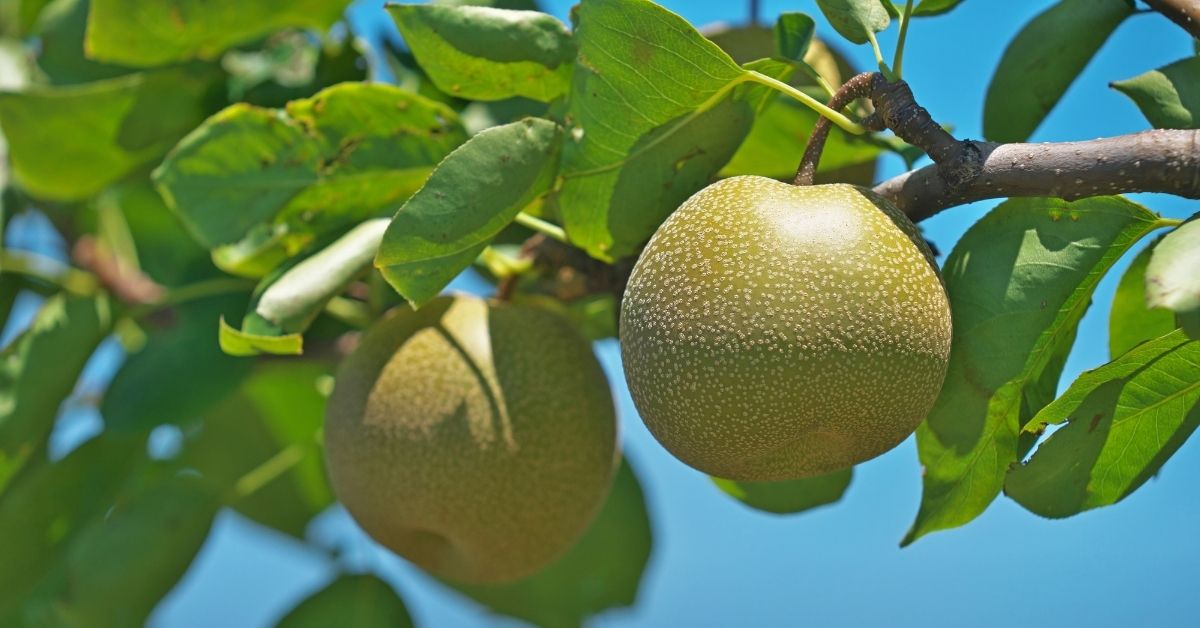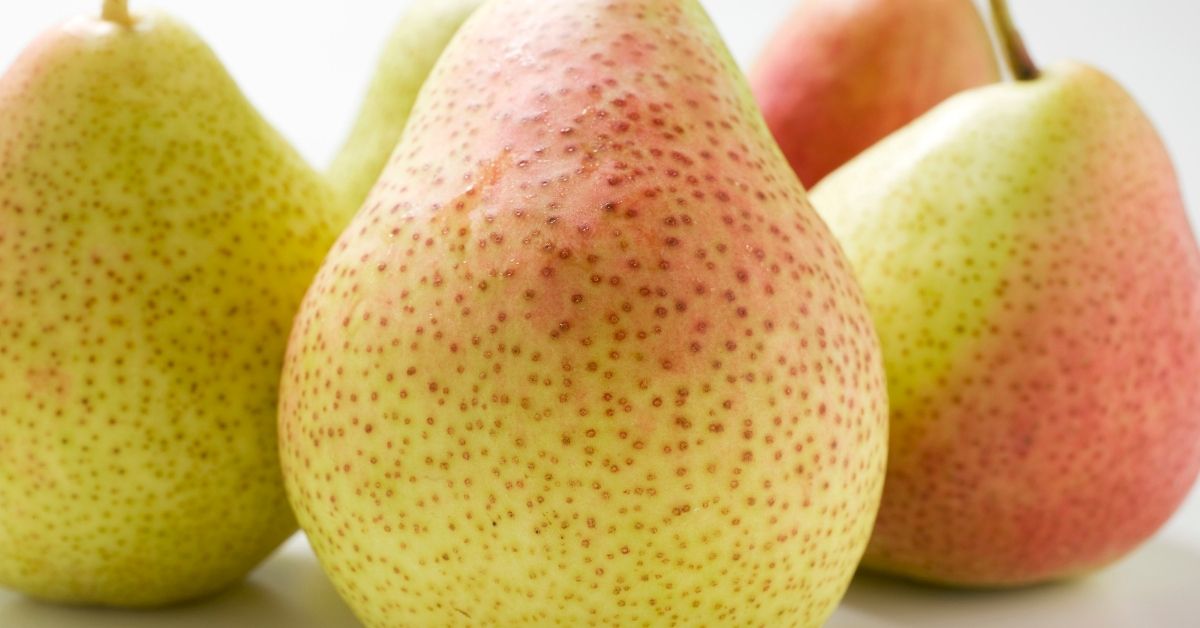
Can horses eat Pears? Yes, they can! In fact, pears are excellent treats for horses. It’s packed with nutrients that are essential to a horse’s health. However, like with any horse treat, moderation is always key.
Pears can be harmful to horses if fed incorrectly or in large quantities. So before you introduce this fruit to your horse, make sure to consult with a veterinarian or nutritionist.
It’s also important to ask many questions, which is what this article will talk about. Here are some of the most common questions people ask about Pears as a horse treat.
Do Horses Like Pears?
Horses don’t like Pears—THEY LOVE THEM! Horses are known to love anything sweet, and pears definitely fall into that category. However, the sweetness of pears is what makes them such a great treat for horses.
It’s no wonder why horses love pears so much, considering how healthy they are for them. Pears are an excellent source of vitamins and minerals. This fruit contains Vitamin C, potassium, and fiber.
Even the picky-eating horses usually have no problem chowing down on a pear or two. If your horse is demanding, try chopping the Pear into smaller pieces or even pureeing it.
Are Pears Safe for horses?
Absolutely! As I said before, Pears are rich in vitamins and minerals essential to a horse’s health. However, it’s important to introduce pears to your horse slowly and in moderation.
When feeding pears (or any treat) to horses, it is important to be mindful of a few things. First, horses have sensitive stomachs. They can easily develop colic if they eat too much at once.
Horses are also prone to choking on large pieces of food. That’s why cutting the Pear into small, bite-sized pieces is important.
Another safety precaution to take is to make sure the Pear is ripe. Horses can’t digest unripe fruit as easily as we can, and it can cause them to stomach upset.
Lastly, avoid feeding pears (or any treat) to overweight horses. Pears (and other treats) are high in sugar, which can cause weight gain. The bottom line is that Pears are completely safe for horses to eat if you take the proper safety precautions.

Are Pears Good for Horses?
Yes, Pears are good for horses as long as they consume them in moderation. Here are some of the benefits that your horse can get from eating Pears:
It’s Filled with the Right Nutrients
Pears contain various nutrients such as Vitamin C, fiber, potassium, and others essential to a horse’s health. These nutrients can help boost the immune system, improve digestion, and regulate blood pressure.
Helps Improve Digestive Health
Thanks to the high amounts of fiber in Pears, they can help horses with digestive problems such as constipation and diarrhea. Fiber is important for horses because it helps add bulk to their stool, making it easier to pass.
Improves Heart Health
Depending on what they eat, horses can develop heart problems. Fortunately, moderate consumption of Pears can help improve heart health by reducing cholesterol and inflammation. This, in turn, can help reduce the risk of developing heart disease.
Are Pears Bad for Horses?
Yes, there will be instances where pears are bad for horses. Despite its benefits, it also has potential drawbacks and side effects that will trigger when you overfeed Pears to your horse. With that said, here are some of the notable downsides of feeding Pears to your horse:
It Contains Sugar
Pears contain natural sugars that are quite nutritious and beneficial to your horse. However, the problem lies when you overfeed your horse with Pears. Natural sugars are fine in moderation but can be harmful if consumed in large quantities.
Your horse can gain weight if you overfeed them with Pear. Only give them pears in moderation. That way, they can get all the benefits this fruit brings to the table without the side effects.

It’s Can Be a Potential Choking Hazard
Horses tend to choke on whole Pears. While some tend to munch on whatever food is presented to them, others just swallow their food without chewing.
This can be a problem because horses can easily choke on large pieces of Pear (or any other treat). That’s why it’s important only to give them small, bite-sized pieces to avoid any potential choking hazard.
Feeding horse pears can be a great way to add variety and nutritional value to their diet. However, it’s important to take the proper safety precautions and only feed them in moderation. When done correctly, horses can enjoy all the benefits that pears offer without any risks.
Side Effects from Pesticides and Chemicals
Be careful when feeding horses pears that have been treated with pesticides and chemicals. These can be toxic to horses and can cause serious health problems. Pears that are grown organically are the safest option for horses.
If you only have access to regular pears, wash them thoroughly to remove any traces of pesticides and other chemicals. It’s also a good idea to peel the skin off before feeding them to horses.
The skin tends to be the part that gets the most exposure to pesticides and chemicals, so it’s best to avoid feeding horses the skin of the Pear.
Can Horses Eat Asian Pears?
Yes, horses can eat Asian Pears. In fact, almost all veterinarians and equine nutritionists give horses the green light to consume Pears.
The best Asian Pear to feed your horse should be the ripest. It’s sweet and juicy on the inside while crunchy on the outside—a perfect combination of flavor and texture that your horse will absolutely love.

Can Horses Eat Whole Pears?
Yes, horses can eat whole Pears. But I would advise against it due to the high chance that your horse might choke on them.
Horses tend to swallow their food without chewing, which can be a problem when feeding them whole Pears.
When presented with a whole Pear, horses tend to gobble it down without chewing. This can lead to choking on the large pieces and cause a serious esophagus injury known as esophageal perforation.
Your horse may or may not prefer chewing its food. If unsure, it’s best to be on the safe side and cut the Pear into small, bite-sized pieces before feeding them.
That way, your horse will enjoy the Pear without any risk of choking on them. At the same time, you’ll also get to avoid the mess that comes with horses trying to eat whole Pears.
Are Pears High in Sugar for Horses?
Pears will only become high in sugar for horses if they are fed in excess. The natural sugars present in Pears may seem harmless. But when they are fed in large quantities, it can lead to horses becoming obese or suffering from other health problems.
Pears are a healthy treat for horses, but they should only be given in moderation. That way, horses can enjoy all the benefits that Pears have to offer without any of the risks.
Are Wild Pears Toxic to Horses?
While there is no record of horses becoming ill from eating Wild Pears, it’s still best to avoid feeding them to horses.
The reason for this is that Wild Pears can contain high levels of toxins that can be harmful to horses. These toxins can come from the soil or from the Pear itself.
The best way to protect horses from these toxins is only to feed them domesticated Pears that have been grown in controlled environments. These Pears are less likely to contain toxins that can be harmful to horses.
At the same time, it’s also important to wash Pears thoroughly before feeding them to horses. This will help remove any toxins that might be present on the surface of the Pear.
How to Feed Pears to Horses?
The challenge of feeding Pears to horses is their potential as a choking hazard. However, this will only be the case if you feed whole Pears to your horse.
You can easily negate this issue by peeling and chopping your pears into smaller bite-sized pieces. Remember that horses can crush almost anything with their strong teeth and jaw. However, that doesn’t mean you should just feed them large chunks of Pear.
It’s best to play it safe and give horses smaller pieces they can easily chew and digest. If you’re still worried about your horse choking on the Pear, you can also mash them into a pulp before feeding them.
However, pureeing Pears are only ideal for young horses or horses with dental problems. Mature horses with healthy teeth should have no trouble chewing on small pieces of Pear.
Conclusion
So, can horses eat Pears? Absolutely, and they will love you! Horses love a few sweet treats now and then, and a sweet and juicy Pear will be a hit with them.
Just remember to take some safety precautions when feeding Pears to horses. Avoid feeding them whole Pears to prevent any choking hazards. Cut them into small pieces or mash them into a pulp instead.
And as with any treat, ensure to feed horses Pears in moderation. Too much of anything, even as healthy as Pears, can be bad for horses. However, a few Pears here and there will be more than enough to keep horses healthy and happy.
